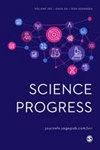择期手术住院患者的药物相关问题:回顾性研究
IF 2.6
4区 综合性期刊
Q2 MULTIDISCIPLINARY SCIENCES
引用次数: 0
摘要
目的:存在药物相关问题的患者是围手术期并发症的高危人群。该研究旨在确定住院择期手术患者药物相关问题的发生率、数量、特征、临床意义和涉及的药物,以及他们的合并症负担。研究对象包括入院接受择期手术的患者,这些患者都存在≥1个与药物相关的问题,住院时间≥24小时,年龄≥18岁。药剂师在患者入院时对其药物相关问题的发生率和性质进行了评估。欧洲药学网络分类 V9.1、Hatoum 临床意义量表、世界卫生组织解剖-治疗-化学分类计划被用来对药物相关问题及其临床意义进行分类。结果:最终数据集包括 11,176 名择期手术住院患者。对其中 284 例(2.54%)患者进行了抽样分析。结果发现,9.89% 的患者至少出现过一次与药物相关的问题(平均 1.43 次,标准差 0.7 次)。主要原因是药物相互作用(30.3%)和超治疗剂量(18.0%)。大多数与药物有关的问题都交由处方医生进行干预(61.3%)。82%的药物相关问题被评为具有临床意义。心血管药物是主要问题。参与者最常见的合并症是肿瘤诊断(34%)、糖尿病合并终末器官损伤(26%)和外周血管疾病(19%)。结论:尽管在这一多样化的研究人群中,药物相关问题的发生率较低,但就其原因和临床意义而言,药物相关问题非常重要。有药物相关问题的患者表现出中等程度的生理疾病负担。研究结果表明,有必要识别暴露于毒品相关问题的患者。本文章由计算机程序翻译,如有差异,请以英文原文为准。
Drug-related problems in elective surgical inpatients: A retrospective study
Objectives:Patients with drug-related problems are at high risk for perioperative complications. The study aimed to determine the prevalence, number, characteristics, clinical significance and the involved drugs of drug-related problems in inpatients, who were admitted to elective surgery, as well as their burden of comorbidity.Methods:The study design was a retrospective, observational study across nine different surgical sites. Patients at admission for elective surgery with ≥ 1 drug-related problem, a hospital stay of ≥ 24 h and at age ≥ 18 years were included. The outcomes of interest were the prevalence and nature of drug-related problems, assessed by pharmacists at hospital admission. The Pharmaceutical Network Europe classification V9.1, the Hatoum scale of clinical significance, the Anatomical-Therapeutic-Chemical classification scheme of the World Health Organization were engaged to categorize drug-related problems and their clinical significance. The Charlson Comorbidity Index was applied to assess the comorbidity of participants.Results:The final data set included 11,176 elective surgical inpatients. Of these, a sample of 284 (2.54%) patients was analysed. It was found that 9.89% of the patients showed at least one drug-related problem (average 1.43, SD 0.7). Major causes were drug-drug interactions (30.3%) and supra-therapeutic doses (18.0%). Most drug-related problems were referred to a prescriber for intervention (61.3%). Eighty-two percent of drug-related problems were rated as clinically significant. Cardiovascular drugs were of major concern. Participants’ most common comorbidities were tumour diagnosis (34%), diabetes mellitus with end organ damage (26%) and peripheral vascular diseases (19%).Conclusions:Although the prevalence of drug-related problems in this diverse study population was low, drug-related problems were of great importance in terms of their cause and clinical significance. Patients with drug-related problems showed a moderate burden of physiological illness. Study results suggest a need to identify exposed patients with drug-related problems.
求助全文
通过发布文献求助,成功后即可免费获取论文全文。
去求助
来源期刊

Science Progress
Multidisciplinary-Multidisciplinary
CiteScore
3.80
自引率
0.00%
发文量
119
期刊介绍:
Science Progress has for over 100 years been a highly regarded review publication in science, technology and medicine. Its objective is to excite the readers'' interest in areas with which they may not be fully familiar but which could facilitate their interest, or even activity, in a cognate field.
 求助内容:
求助内容: 应助结果提醒方式:
应助结果提醒方式:


